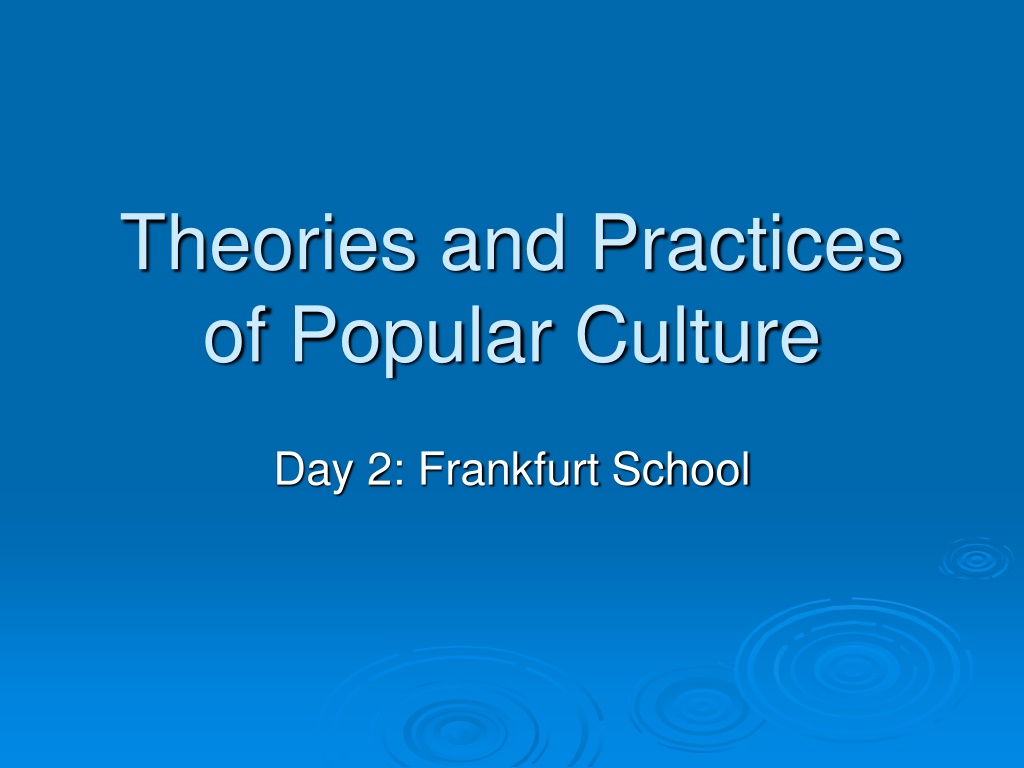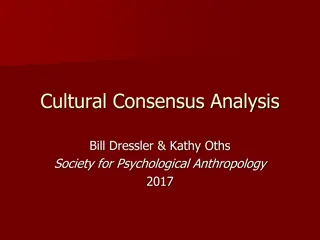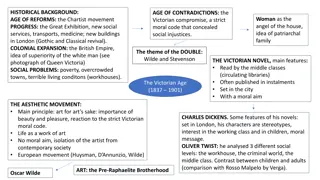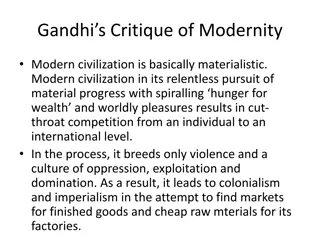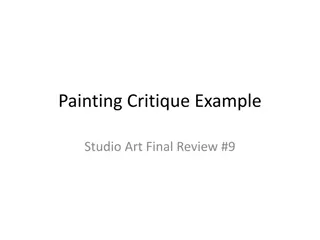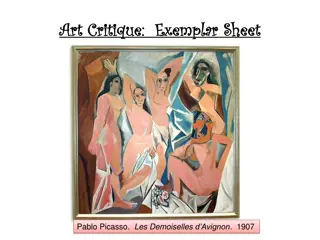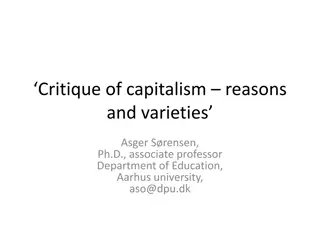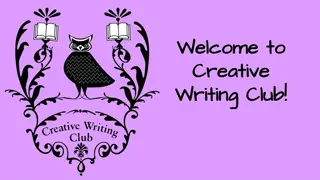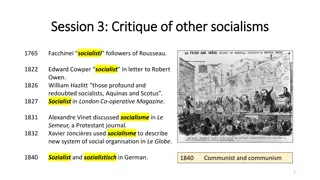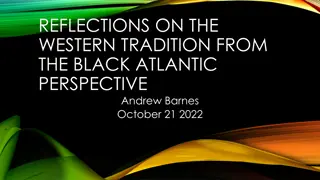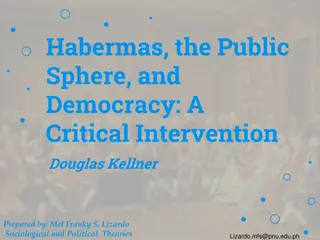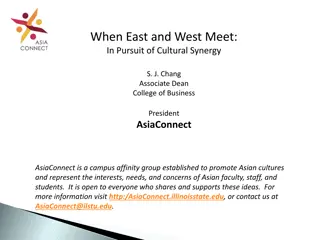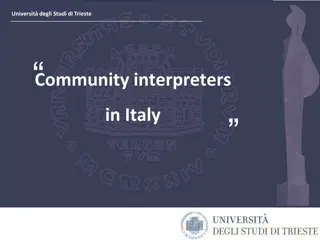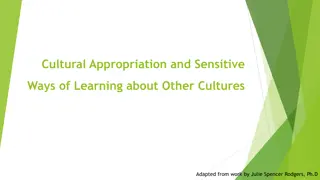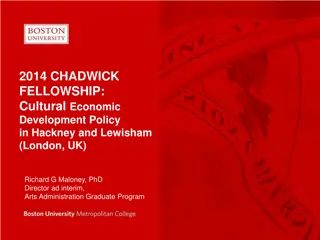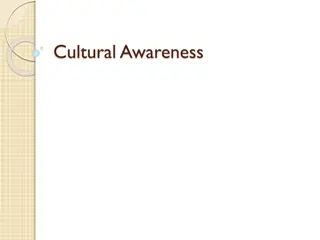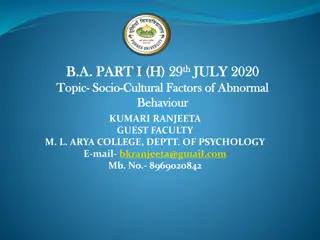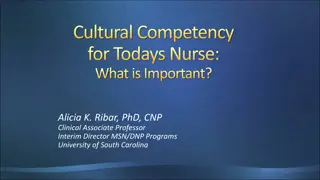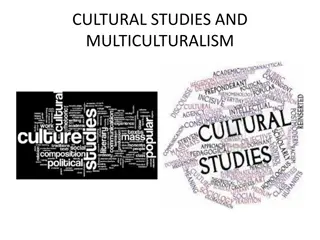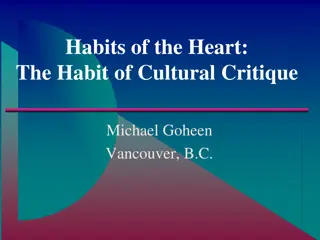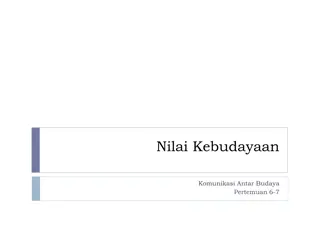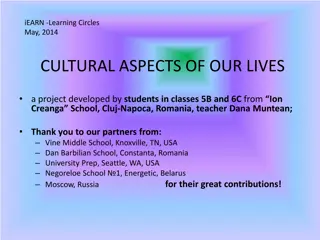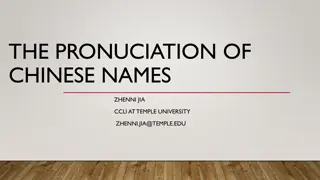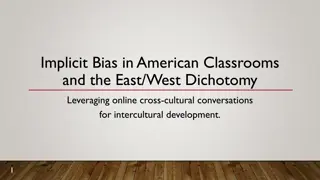The Frankfurt School and Cultural Critique
The Frankfurt School, a group of critical theorists, challenged traditional Marxist views on culture and ideology. They examined how mass media and consumer culture influenced society, highlighting the role of ideas in reflecting economic positions. Despite capitalism's stability, they explored the lack of proletarian revolution and the impact of mass production on mass culture. The historical context of the rise of Nazism in Europe and World War II exile influenced their critiques.
Download Presentation

Please find below an Image/Link to download the presentation.
The content on the website is provided AS IS for your information and personal use only. It may not be sold, licensed, or shared on other websites without obtaining consent from the author. Download presentation by click this link. If you encounter any issues during the download, it is possible that the publisher has removed the file from their server.
E N D
Presentation Transcript
Theories and Practices of Popular Culture Day 2: Frankfurt School
Marxist Karl Marx Frederick Engels 1818-1883 1820-1895 Ideas are the production of social class and institutions Ideas reflect the economic position of the promoters and developers of these ideas
After Marx No real mass media Revolution takes place in Soviet Union but not as predicted by Marx Workers welfare increases New kind of social arrangements So different responses to why the revolution does not take place Gramsci Frankfurt School
Background to the Frankfurt School Frankfurt Institute for Social Research (1923) (Critical theory): Key figures Adorno, Horkheimer, Marcuse Marginal figure Walter Benjamin
Historical context significant: German-Jewish, left writers Rise of Nazis and Fascism in Europe 1930s World War II exile to USA USA democracy , capitalist consumer culture
Problem Against economic determinism of Marxism: Materialism Culture & Ideology What you have economically determines your social views, your consumption and your beliefs So each class has different set of beliefs One dominant ideology that of the bourgeoisie Different ideology of the masses should lead to conflict and revolution
Big Problem Capitalism created relative stability Less (class) conflicts and no sign of proletarian revolution Why? For Frankfurt School thinkers Role of mass media
From mass production to mass culture The way to make automobiles is to make one automobile like another automobile, to make them all alike, to make them come through the factory just alike; just as one pin is like another pin when it comes from a pin factory, or one match is like another match when it comes from a match factory (Henry Ford, 1903)
You can have any colour you like as long as it s black (Henry Ford, talking about the new model T Ford Cars)
Mass society Middle of 19th century onwards Industrialisation, standardisation, urbanisation Democracy and universal education Population densely located spatially but distant socially Individuals vulnerable to manipulation and persuasion as no force of tradition
Mass Communication End of 19th century Cinema and radio broadcasting, telephone Relied on urban density Even now on trip to London no mobile phone signal (O2) Not confuse mass with universal
From mass culture to the culture industries People working in industry, consume cultural products But these cultural products are not work of inspiration or high art, rather also commodities like the model T Ford Culture industries
Mass culture = mass production ofstandardised cultural goods for mass consumption Culture Industry producesmass culture imposed on people through media. Art, TV, film, music etc commercialised / industrialised https://www.youtube.com/watch?v=4 YGnPgtWhsw
Movies and radio need no longer pretend to be art. The truth that they are just business is made into an ideology in order to justify the rubbish they deliberately produce. They call themselves industries; and when their directors incomes are published, any doubt about the social utility of the finished product is removed (Adorno and Horkheimer 1944)
Ideology Mass culture deceives and manipulates, ie present an ideology Not concerned with material conditions (ie poverty or true needs) but pacified by images of consumption True needs are to be creative, autonomous and independent (ie enlightenment man)
Marcuse Marcuse: false needs are created by advertising and standardised, repetitious media objects No space for audience to think and critique the logic of capitalism is absorbed into their minds One dimensional man (Marcuse)
Adorno on culture industry Ideology that creates a product that is seen as unique but comes out of a standard production system (the studio) Culture industry is all powerful and masses powerless. Creates conformity and lack of critical awareness of society Audiences are infantilised by media (and correspondingly by society)
Mass Society and Media gullibility, fickleness, herd-prejudice, lowness of taste and habit (Raymond Williams, The Long Revolution,1961: 289) Negative connotations Listeners, viewers, readers are dupes Couch potatoes, ie passive acceptance Examples of opening broadcast Model of media: hypodermic syringe
Mass Media Less to do with nature of broadcast to large population More about the way that the audience is perceived no masses; there are only ways of seeing people as masses (Raymond Williams, The Long Revolution,1961: 289)
Critique Is capitalism so smooth? Super elitist Only intellectual can see truth Where is culture of resistance
Walter Benjamin (1892-1940) Adorno and Horkheimer s culture industry essay was a reply to Benjamin s 1936 The Work of Art in the Age of Mechanical Reproduction Benjamin expressed a more participatory view of popular culture - mass reproduction makes art accessible
Aura Key aspects that Adorno says are good about art; uniqueness, authenticity, individuality For Benjamin these are associated with an aura that seeks to hide rather than illuminate Mass production breaks individuality by making things reproducible and therefore accessible Ultimately photography and film completely demystify painting (high art) These forms not require specialist knowledge to interpret
Film in contrast Film particularly good at capturing real life and allows masses to contemplate and analyse it Positive for people to view art as work , as an industry and activity like any other Allows us to partake in the collective experience of producing and consuming art Everyone can be an expert / critic
Painting and Film See adjacent text. Film clip Toy Story 3 Why grossed - 682 Million globally http://www.youtube.co m/watch?v=JcpWXaA 2qeg&feature=related Worth: $450 million in November 2017
Contemporary Culture No distinction between commercial and culture Very little aspect of art not commoditised Even amateurs are valorised: Britain s Got Talent, X- Factor Reality TV But not so new Begins in 1950s with new era of mass consumption
